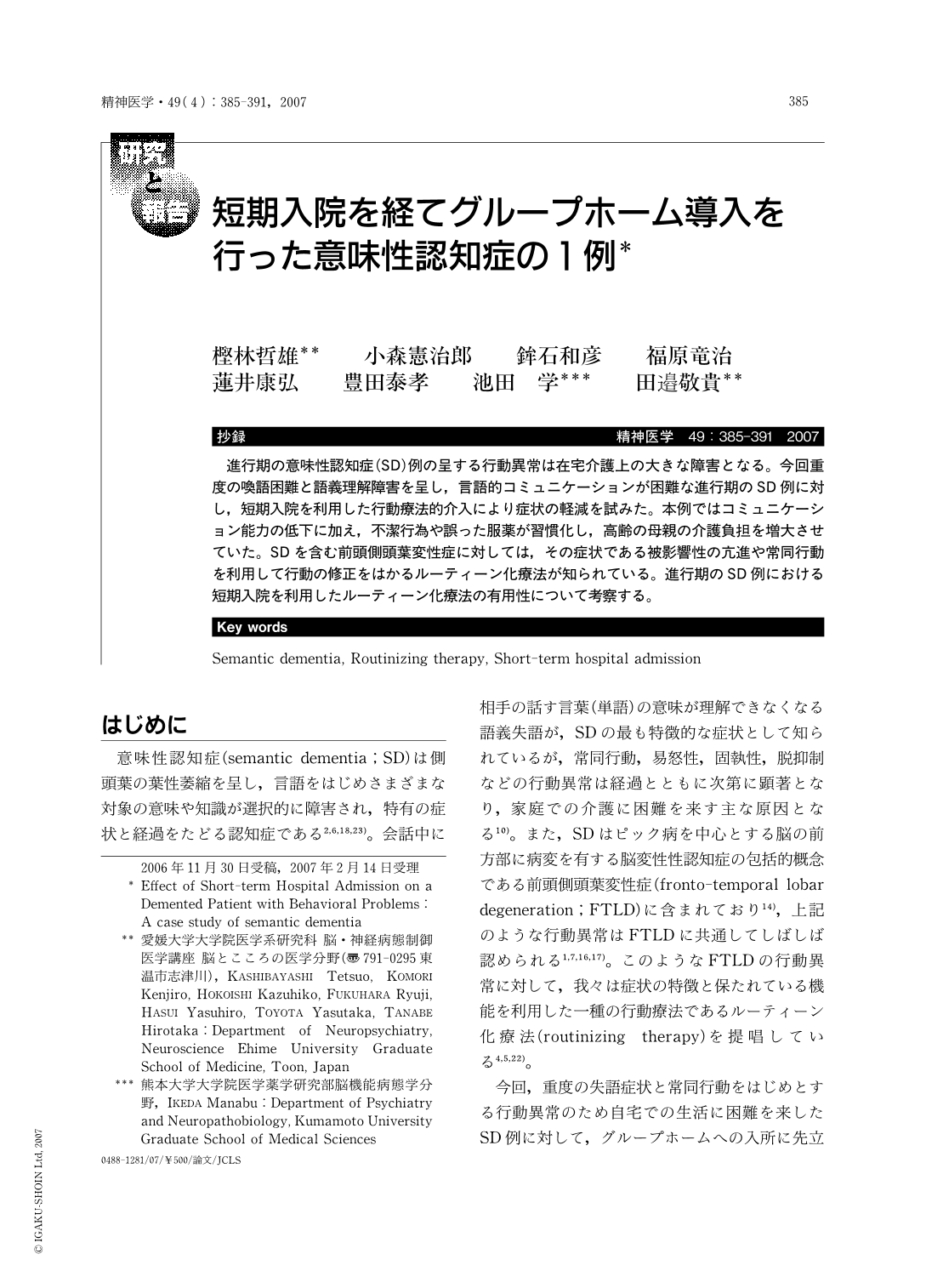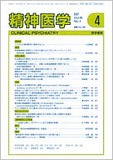Japanese
English
- 有料閲覧
- Abstract 文献概要
- 1ページ目 Look Inside
- 参考文献 Reference
抄録
進行期の意味性認知症(SD)例の呈する行動異常は在宅介護上の大きな障害となる。今回重度の喚語困難と語義理解障害を呈し,言語的コミュニケーションが困難な進行期のSD例に対し,短期入院を利用した行動療法的介入により症状の軽減を試みた。本例ではコミュニケーション能力の低下に加え,不潔行為や誤った服薬が習慣化し,高齢の母親の介護負担を増大させていた。SDを含む前頭側頭葉変性症に対しては,その症状である被影響性の亢進や常同行動を利用して行動の修正をはかるルーティーン化療法が知られている。進行期のSD例における短期入院を利用したルーティーン化療法の有用性について考察する。
Advanced behavioral symptoms associated with semantic dementia(SD)often result in the impossibility of caring for the patient at home. We report a patient with SD presenting behavioral disturbances including stereotypy, persistence, and agitation, which were relieved by routinizing therapy during short-term hospital admission.
A 66-year-old right handed woman presented with a five-year history of word finding difficulty and impaired recognition of nominal terms associated with circumscribed atrophy of the bilateral temporal lobes. She developed a toothache because of restless grinding of her teeth, but her dental treatment was interrupted because she became agitated. Group home care was planned so that her mother, her only close family member living with her, would not have to bear the increasing burden of caring for the patient. Prior to entrance into the group home, the patient was admitted to the hospital in order to investigate her physical condition, evaluate her mental status and activities of daily living(ADL).
Upon hospital admission, irritability and agitation were observed and the patient could not be calmed by using conversation because of her poor word comprehension. However, since her basic ADL were mostly preserved, therapeutic intervention utilizing her preserved abilities was possible. Routinizing technique was used to facilitate a consultation with the dentist. The patient became calmer after she began to work with jigsaw puzzles. These habits were successfully maintained after she moved into the group home.
The patient had refused to bathe throughout her hospitalization. However, when she was offered a smaller bathroom which was similar to the bathroom found in her own house, she was easily persuaded to take a bath in the group home. These findings suggest that a familiar living environment should be a central part of rehabilitation programs for patients with SD.

Copyright © 2007, Igaku-Shoin Ltd. All rights reserved.


